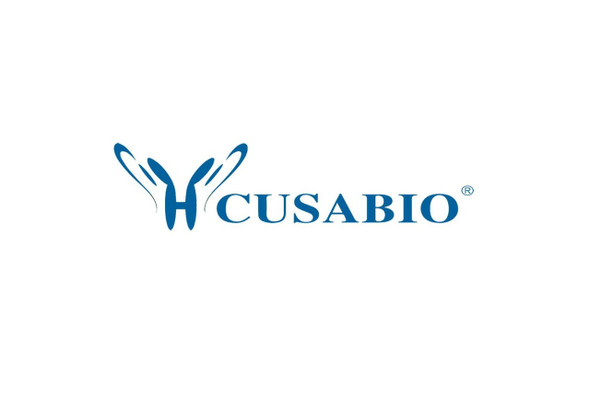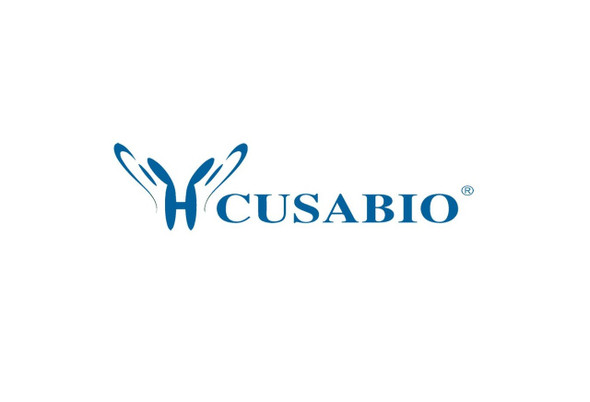Cusabio Human Recombinants
Recombinant Human Keratin, type II cytoskeletal 1 (KRT1) | CSB-EP012503HU
- SKU:
- CSB-EP012503HU
- Availability:
- 3 - 7 Working Days
Description
Recombinant Human Keratin, type II cytoskeletal 1 (KRT1) | CSB-EP012503HU | Cusabio
Alternative Name(s): 67 kDa cytokeratin Cytokeratin-1 Short name: CK-1 Hair alpha protein Keratin-1 Short name: K1 Type-II keratin Kb1 KRTA
Gene Names: KRT1
Research Areas: Signal Transduction
Organism: Homo sapiens (Human)
AA Sequence: SRQFSSRSGYRSGGGFSSGSAGIINYQRRTTSSSTRRSGGGGGRFSSCGGGGGSFGAGGGFGSRSLVNLGGSKSISISVARGGGRGSGFGGGYGGGGFGGGGFGGGGFGGGGIGGGGFGGFGSGGGGFGGGGFGGGGYGGGYGPVCPPGGIQEVTINQSLLQPLNVEIDPEIQKVKSREREQIKSLNNQFASFIDKVRFLEQQNQVLQTKWELLQQVDTSTRTHNLEPYFESFINNLRRRVDQLKSDQSRLDSELKNMQDMVEDYRNKYEDEINKRTNAENEFVTIKKDVDGAYMTKVDLQAKLDNLQQEIDFLTALYQAELSQMQTQISETNVILSMDNNRSLDLDSIIAEVKAQYEDIAQKSKAEAESLYQSKYEELQITAGRHGDSVRNSKIEISELNRVIQRLRSEIDNVKKQISNLQQSISDAEQRGENALKDAKNKLNDLEDALQQAKEDLARLLRDYQELMNTKLALDLEIATYRTLLEGEESRMSGECAPNVSVSVSTSHTTISGGGSRGGGGGGYGSGGSSYGSGGGSYGSGGGGGGGRGSYGSGGSSYGSGGGSYGSGGGGGGHGSYGSGSSSGGYRGGSGGGGGGSSGGRGSGGGSSGGSIGGRGSSSGGVKSSGGSSSVKFVSTTYSGVTR
Source: E.coli
Tag Info: N-terminal 6xHis-tagged
Expression Region: 2-644aa
Sequence Info: Full Length of Mature Protein
MW: 69.9 kDa
Purity: Greater than 85% as determined by SDS-PAGE.
Relevance: May regulate the activity of kinases such as PKC and SRC via binding to integrin beta-1 (ITB1) and the receptor of activated protein C kinase 1 (RACK1). In complex with C1QBP is a high affinity receptor for kininogen-1/HMWK.
Reference: "Amino acid sequences of mouse and human epidermal type II keratins of Mr 67,000 provide a systematic basis for the structural and functional diversity of the end domains of keratin intermediate filament subunits." Steinert P.M., Parry D.A.D., Idler W.W., Johnson L.D., Steven A.C., Roop D.R. J. Biol. Chem. 260:7142-7149(1985)
Storage: The shelf life is related to many factors, storage state, buffer ingredients, storage temperature and the stability of the protein itself. Generally, the shelf life of liquid form is 6 months at -20?/-80?. The shelf life of lyophilized form is 12 months at -20?/-80?.
Notes: Repeated freezing and thawing is not recommended. Store working aliquots at 4? for up to one week.
Function: May regulate the activity of kinases such as PKC and SRC via binding to integrin beta-1 (ITB1) and the receptor of activated protein C kinase 1 (RACK1). In complex with C1QBP is a high affinity receptor for kininogen-1/HMWK.
Involvement in disease: Epidermolytic hyperkeratosis (EHK); Ichthyosis hystrix, Curth-Macklin type (IHCM); Keratoderma, palmoplantar, non-epidermolytic (NEPPK); Ichthyosis annular epidermolytic (AEI); Keratoderma, palmoplantar, striate 3 (SPPK3)
Subcellular Location: Cell membrane
Protein Families: Intermediate filament family
Tissue Specificity: The source of this protein is neonatal foreskin. The 67-kDa type II keratins are expressed in terminally differentiating epidermis.
Paythway:
Form: Liquid or Lyophilized powder
Buffer: If the delivery form is liquid, the default storage buffer is Tris/PBS-based buffer, 5%-50% glycerol. If the delivery form is lyophilized powder, the buffer before lyophilization is Tris/PBS-based buffer, 6% Trehalose, pH 8.0.
Reconstitution: We recommend that this vial be briefly centrifuged prior to opening to bring the contents to the bottom. Please reconstitute protein in deionized sterile water to a concentration of 0.1-1.0 mg/mL.We recommend to add 5-50% of glycerol (final concentration) and aliquot for long-term storage at -20?/-80?. Our default final concentration of glycerol is 50%. Customers could use it as reference.
Uniprot ID: P04264
HGNC Database Link: HGNC
UniGene Database Link: UniGene
KEGG Database Link: KEGG
STRING Database Link: STRING
OMIM Database Link: OMIM









